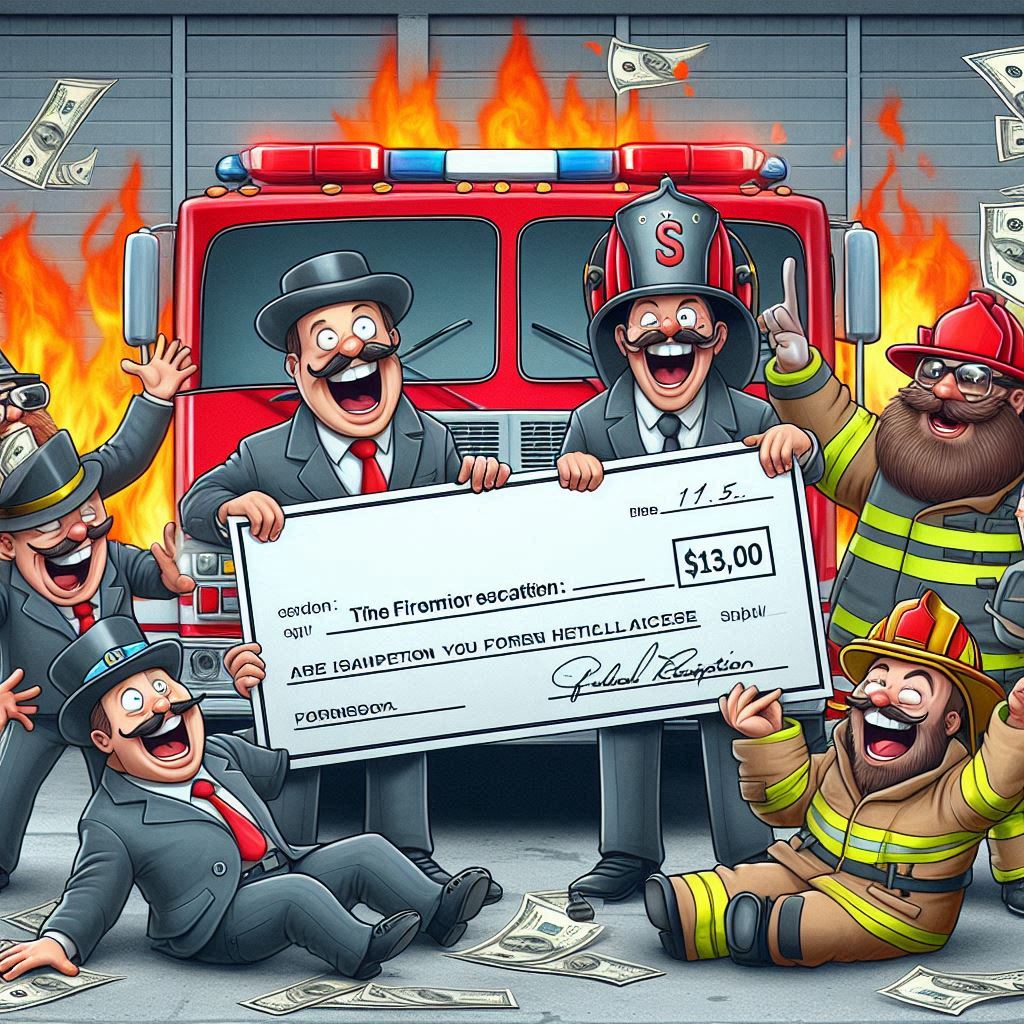
Wondering if the fire department charges for their services? In this article, I’ll delve into the common question of whether or not the fire department will send you a bill after responding to a call. As a seasoned blogger in the field, I’ve got the inside scoop on how fire departments typically handle billing for their services.
Many people are unsure about the financial implications of calling the fire department in an emergency. With my expertise, I’ll break down the factors that determine whether or not you’ll receive a bill from the fire department. Stay tuned to find out the truth behind whether or not the fire department charges for their life-saving services.
Key Takeaways
- Fire departments offer a range of services beyond firefighting, including EMS, search and rescue, and public education.
- Billing practices by fire departments can vary based on location, type of service provided, insurance coverage, and mutual aid agreements.
- Charges for fire department services may apply in cases like false alarms, hazmat incidents, car accidents, and non-resident assistance.
- Misconceptions about fire department services being entirely free or always covered by insurance should be debunked to avoid surprises.
- It is essential to understand potential charges and billing practices in your area to be prepared when contacting the fire department for assistance.
Understanding Fire Department Services
When it comes to fire department services, it’s essential to grasp the variety of assistance they provide. From responding to fires and rescuing those in need to providing medical aid and responding to hazardous materials incidents, fire departments are versatile and crucial first responders in many situations.
Here are some key points to help you understand fire department services:
- Fire Suppression: Firefighters are experts in combating fires of all types and sizes to protect lives and property.
- Emergency Medical Services (EMS): Many fire departments are also trained to deliver medical care before ambulance services arrive.
- Search and Rescue: Fire departments are equipped to locate and extricate individuals in precarious situations.
- Public Education: They also play a vital role in educating communities on fire safety measures and prevention.
Overall, the fire department’s role goes beyond firefighting. Their expertise, equipment, and quick response are invaluable in various emergency scenarios. Be assured that when you contact the fire department, you’ll receive professional and timely assistance tailored to the situation at hand.

Factors Influencing Billing
When it comes to fire department charges, it’s essential to understand the factors that can influence whether you receive a bill for their services. Here are some key points to consider:
- Location: The billing process can vary depending on where you’re located. Some areas have tax-funded fire departments, which means there are no charges for their services. In contrast, others have fee-for-service systems, where individuals or insurance companies may be billed for fire department responses.
- Type of Service: The type of service provided can also impact billing. Emergency medical services (EMS) may be billed differently from fire suppression services. Be sure to inquire about the specific billing practices in your area to understand what you might be charged for.
- Insurance Coverage: Your insurance policy can play a significant role in whether you’re charged for fire department responses. Some policies cover these costs, while others may require you to pay out of pocket. It’s crucial to review your insurance coverage to know what to expect.
- Mutual Aid Agreements: In some cases, fire departments may have mutual aid agreements with neighboring jurisdictions. This means that even if a different fire department responds to your emergency, you could still receive a bill based on the agreement in place.
Understanding these factors can give you a clearer picture of potential charges you might face when contacting the fire department for assistance. Be proactive in researching the billing practices in your area to avoid any surprises in the future.
Cases Where Charges May Apply
When it comes to fire department services, there are certain scenarios where charges may apply. It’s crucial to be aware of these situations to prevent any unexpected costs. Here are some instances where you might receive a bill for fire department responses:
- False Alarms: Repeated false alarms at a location can lead to charges being incurred as they consume valuable resources and time.
- Hazmat Incidents: Handling hazardous material incidents requires specialized equipment and resources, leading to potential charges.
- Car Accidents: Depending on the circumstances, extrication services during car accidents may result in a bill.
- Non-Resident Assistance: If you’re not a resident of the jurisdiction where the incident occurred, you might be billed for services provided.
Understanding these scenarios can help you prepare for any potential charges and ensure you’re not caught off guard. Stay informed about the billing practices in your area to navigate fire department services effectively.
Common Misconceptions Debunked
One common misconception that many people have is that the fire department services are always free of charge. In reality, fire departments may charge fees for certain services, and it’s essential to be aware of these potential costs.
Another misconception is that insurance will always cover any charges incurred for fire department services. While some insurance policies may cover these costs, it’s not a guarantee, and individuals should familiarize themselves with their specific coverage to avoid surprises.
It’s also important to note that charges for fire department services can vary depending on the municipality. This means that what may be free in one area could come with a cost in another. It’s crucial to inquire about the potential charges applicable in your location to avoid any misunderstandings.
Additionally, some individuals may believe that calling the fire department for non-emergency situations will not result in charges. However, it’s crucial to remember that responding to calls, even non-emergencies, requires resources and may lead to fees being applied.
Understanding these common misconceptions can help individuals make informed decisions regarding when to contact the fire department and be prepared for any charges that may arise.
Conclusion
Understanding the potential charges associated with fire department services is crucial for making informed decisions. Debunking common misconceptions reveals the variability of fees based on municipality and the possibility of charges for both emergency and non-emergency calls. It’s essential to be prepared for any costs that may arise and not assume that all services are free. By being aware of these factors, individuals can navigate fire department services confidently and responsibly.
Frequently Asked Questions
Are all fire department services free?
No, charges may apply for certain services provided by the fire department. Insurance coverage is not guaranteed, and the cost of services can vary depending on the municipality.
Do non-emergency calls to the fire department incur fees?
Yes, even non-emergency calls can result in charges due to the resources required to respond. It’s important to be aware that contacting the fire department for non-emergencies may lead to fees.
How can individuals prepare for potential charges from the fire department?
To be prepared for potential charges, individuals should understand that not all services are free and that insurance coverage may not always apply. Being informed about the possibility of fees helps in making decisions about when to contact the fire department.
